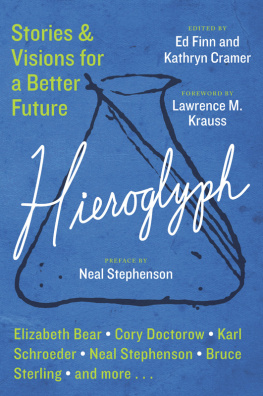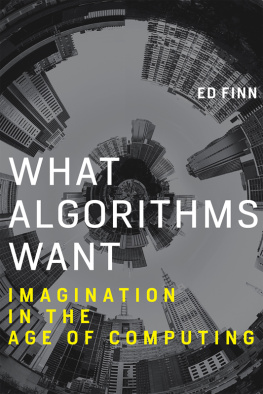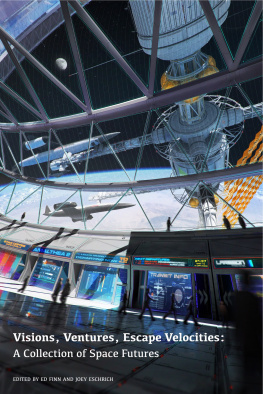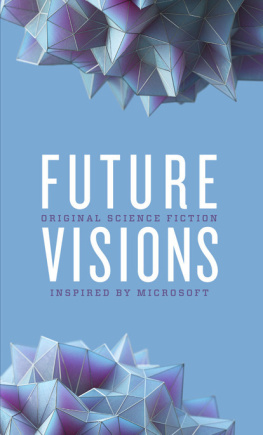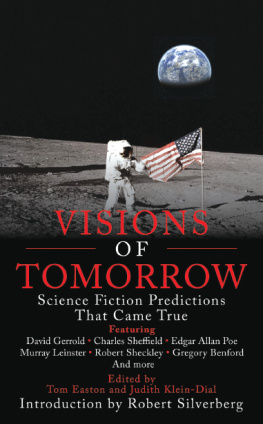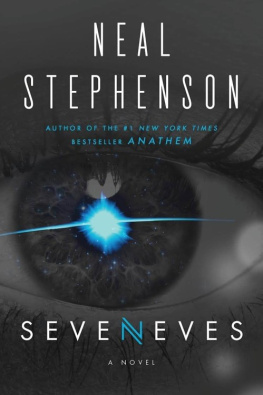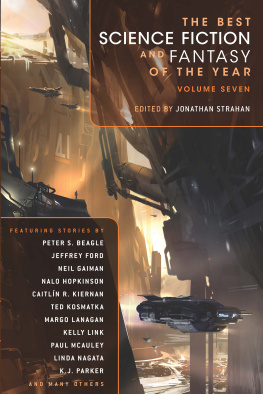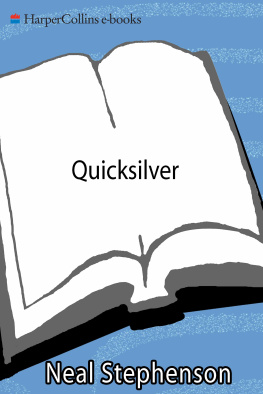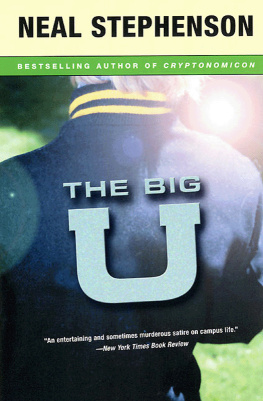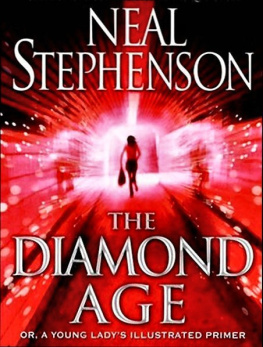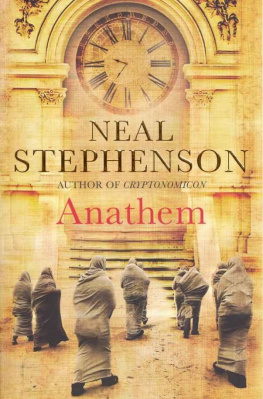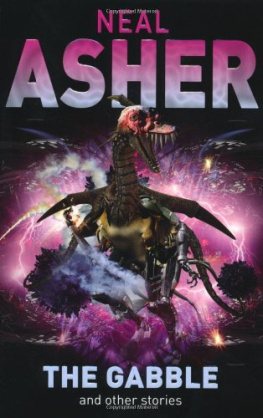Charlie Jane Anders writes about science fiction for io9 and is the author of the novel Choir Boy (2005). She has contributed to Mother Jones , the Wall Street Journal , the San Francisco Chronicle , ZYZZYVA , Pindeldyboz , Strange Horizons , and many other publications. She is coeditor of the anthology Shes Such a Geek (2006) and published an indy magazine called other .
Madeline Ashby is a science fiction writer and strategic foresight consultant based in Toronto. She is the author of vN (2012) and iD (2013), the first two novels in her Machine Dynasty series. Her fiction has appeared in Nature, FLURB, Tesseracts, Imaginarium, and Escape Pod . Her essays and criticism have appeared at Boing Boing, io9, WorldChanging, Creators Project, Arcfinity, and Tor.com.
Elizabeth Bear is a science fiction and fantasy author based in Massachusetts. In 2005 she won the John W. Campbell Award for Best New Writer, and she has also won two Hugo Awards, for Best Short Story and Best Novelette. Elizabeth is an instructor at the Viable Paradise science fiction and fantasy writers workshop and also teaches at Clarion, Clarion West, the WisCon Writers Respite, and Odyssey.
Gregory Benford is a science fiction author, educator, and astrophysicist. In addition to authoring more than twenty novels, Gregory is a professor of physics at the University of California, Irvine, where he has been a faculty member since 1971. He has served as a scientific consultant for Star Trek: The Next Generation, is a Woodrow Wilson Fellow, and is a contributing editor for Reason magazine.
David Brin is a scientist, bestselling author, and tech-futurist. His novels include Earth (1990), The Postman (1985, filmed in 1997), and Hugo Award winners Startide Rising (1983) and The Uplift War (1987). A leading commentator and speaker on modern trends, his nonfiction book The Transparent Society (1998) won the Freedom of Speech Award of the American Library Association.
James L. Cambias is a science fiction author and game designer. His short stories have been featured in the Magazine of Fantasy and Science Fiction, Nature, and the Journal of Pulse-Pounding Narratives . He is a cofounder of Zygote Games, codesigned Bone Wards: The Game of Ruthless Paleontology, and has written or contributed to books for a number of tabletop role-playing games.
Brenda Cooper is a science fiction author, futurist, and technology professional. She is the chief information officer for the city of Kirkland, Washington, and a member of the Futurist Board for the Lifeboat Foundation. Brenda is the author of seven novels, including The Silver Ship and the Sea, which won the Endeavor Award in 2008.
Paul Davies is a theoretical physicist, cosmologist, astrobiologist, and best-selling author. He is a regents professor, director of the Beyond Center for Fundamental Concepts in Science, and co-director of the Cosmology Initiative at Arizona State University. His award-winning books include The Eerie Silence (2010), The Goldilocks Enigma (2007), How to Build a Time Machine (2007), and The Mind of God (1992).
Cory Doctorow is a science fiction author, activist, journalist, and blogger. He is the coeditor of Boing Boing and the author of young adult novels like Homeland (2013) , Pirate Cinema (2012), and Little Brother (2008) and novels for adults like Rapture of the Nerds (2012) and Makers (2009). Cory is the former European director of the Electronic Frontier Foundation and cofounded the UK Open Rights Group. Born in Toronto, Canada, he now lives in London.
Kathleen Ann Goonan is a science fiction author, educator, and critic. Her debut novel, Queen City Jazz (1994), was a New York Times Notable Book of the Year, and her novel In War Times (2007) won the John W. Campbell Award for Best Science Fiction Novel. She is a visiting professor at the Georgia Institute of Technology.
Lee Konstantinou is a novelist and scholar of post-World War II U.S. fiction. He serves as associate editor for fiction and criticism at the Los Angeles Review of Books and is an assistant professor in the department of English at the University of Maryland, College Park. Lee is the author of the novel Pop Apocalypse (2009) and coeditor of The Legacy of David Foster Wallace (2012).
Lawrence M. Krauss is a theoretical physicist, cosmologist, author, and science popularizer. He is the founding director of the Origins Project at Arizona State University and the foundation professor at ASUs School of Earth and Space Exploration and Department of Physics. His most recent books include A Universe from Nothing: Why There Is Something Rather Than Nothing (2012), Quantum Man: Richard Feynmans Life in Science (2010), and Hiding in the Mirror (2005).
Geoffrey A. Landis is a scientist and a science fiction writer. As a scientist, he is a researcher at the NASA John Glenn Research Center. He works on projects related to advanced power and propulsion systems for space and planetary exploration and is currently a member of the science team for the Mars Exploration Rover Mission. As a science fiction writer, he has won a Nebula Award, two Hugo Awards, and a Locus Award, as well as two Rhysling Awards for his poetry.
Annalee Newitz writes about science, pop culture, and the future. She is the editor in chief of io9, a publication that covers science and science fiction. She is the author of the books Scatter, Adapt, and Remember: How Humans Will Survive a Mass Extinction (2013) and Pretend Were Dead: Capitalist Monsters in American Pop Culture (2006) and the coeditor of Shes Such a Geek (2006). Formerly, she was a policy analyst at the Electronic Frontier Foundation and a lecturer at the University of California, Berkeley, where she received a Ph.D. in English and American Studies.
Rudy Rucker is a science fiction author, philosopher, mathematician, and one of the founders of the cyberpunk movement. He worked for twenty years as a computer science professor at San Jose State University and has published a number of software packages. His novels include Turing & Burroughs (2012), Jim and the Flims (2011), and Hylozoic (2009), as well as the Ware Tetralogy (19822000), a four-book cyberpunk series that won two Philip K. Dick awards.
Karl Schroeder divides his time between writing fiction and analyzing the future impact of science and technology on society. He is the author of nine novels and has pioneered a new mode of writing that blends fiction and rigorous futures research: Crisis in Zefra (2005) and Crisis in Urlia (2011) were commissioned by the Canadian army as research tools. Karl holds a masters degree in strategic foresight and innovation from OCAD University in Toronto.
Vandana Singh is a science fiction author and assistant professor of physics at Framingham State College. Her short stories, which most recently include Peripateia (2013), Cry of the Kharchal (2013), With Fate Conspire (2013), and A Handful of Rice (2012), frequently appear in Years Best and other anthologies. She also writes poetry as well as novels and short stories for children.
Neal Stephenson is an author of historical and science fiction, a technology consultant, and the principal provocateur behind Project Hieroglyph. He is the author of the three-volume historical epic the Baroque Cycle (20032004) and the novels REAMDE (2012), Anathem (2008), Cryptonomicon (1999), The Diamond Age (1995), Snow Crash (1992), and Zodiac (1988). He lives in Seattle, Washington.
Bruce Sterling is an author, journalist, editor, and critic. Best known for his ten science fiction novels, he also writes short stories, book reviews, design criticism, and introductions for books ranging from Ernst Juenger to Jules Verne. He is a contributing editor at Wired magazine, and in 2013 he was the Visionary in Residence at the Center for Science and the Imagination at Arizona State University.
Ed Finn is the founding director of the Center for Science and the Imagination at Arizona State University, where he is an assistant professor with a joint appointment in the School of Arts, Media and Engineering and the Department of English. His research and teaching explore the ways ideas circulate through contemporary culture, especially in digital form, and he is currently working on a book about the changing nature of reading in the age of algorithms. He completed his Ph.D. in English and American literature at Stanford University. Before graduate school Ed worked as a journalist at Time , Slate , and Popular Science . He earned his bachelors degree at Princeton University with a comparative literature major and certificates in applications of computing, creative writing, and European cultural studies.
Next page
